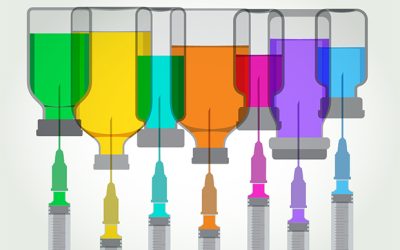UK’s health and social care secretary will declare war on cancer with a decade-long plan to combat disease misery
UK’s health and social care secretary Sajid Javid will today “declare a national war on cancer”. In a speech at the Francis Crick Institute Javid is set to launch a call for evidence to drive a 10-Year Cancer plan for England.
“We have published the call for evidence for a new 10 Year Cancer Plan for England, a searching new vision for how we will lead the world in cancer care,” he said,
The call for evidence seeks input from cancer patients, relatives and NHS staff to gain the deepest understanding of the issue possible and provide the best future care possible.
Javid is expected to outline his vision for England to become a world-leader in cancer care, renewing attention paid to innovative treatment and early diagnosis in the face of the backlog of cancer care being tackled by the NHS in the wake of the pandemic. It is hoped these efforts will radically improve outcomes for cancer patients.
He explained: “This Plan will show how we are learning the lessons from the pandemic and apply them to improving cancer services over the next decade. It will take a far-reaching look at how we want cancer care to be in 2032–ten years from now. Looking at all stages, from prevention, to diagnosis, to treatment and vaccines.”
Due to the strains on the healthcare system imposed by the COVID-19 pandemic, there were nearly 50,000 fewer cancer diagnoses across the UK, including 34,000 in England, from March 2020 to November 2021. While NHS staff ensured cancer treatment was maintained at 94% of pre-pandemic levels, the effects of COVID-19 were undoubtedly significant.
Building on the NHS Long Term Plan, the health and social care secretary will also set out new strengthened priorities, including a boost of the cancer workforce, intensifying research on new early diagnostic tools, in order to catch cancers at an earlier stage, while intensifying research on mRNA vaccines and therapeutics for cancer.
The last of these will be achieved through industry support, by combining expertise in cancer immunotherapy treatment and the vaccine capabilities developed throughout the pandemic.
Cancer remains the largest cause of death from disease in the UK.










